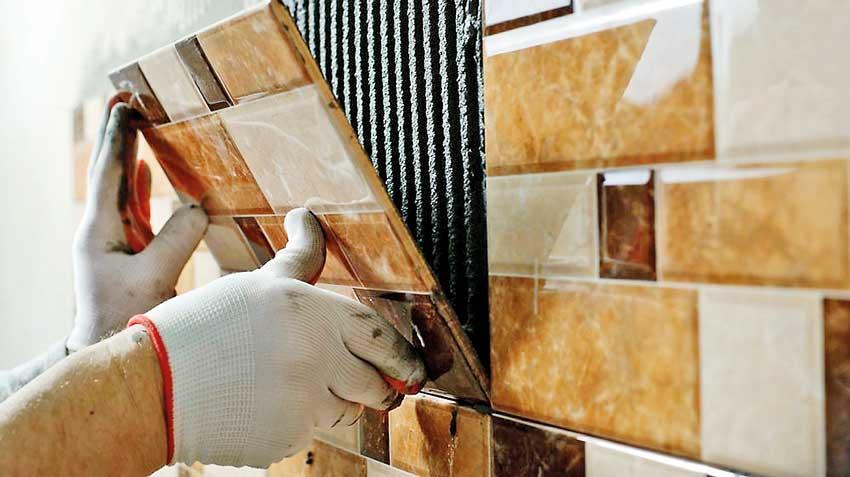27 Jul 2020 - {{hitsCtrl.values.hits}}

Sri Lanka’s tile and sanitary ware importers have raised concerns on the government-imposed import ban stating that the unpopular move is not only detrimental to the industry, but also to the national economy.
According to the Tile and Sanitary Ware Importers Association (TSIA), the temporary suspension, if not rectified, will have a cascading effect on auxiliary related industries such as warehousing & logistics, clearing & forwarding, banking & finance, construction, and commercial real estates amongst others.
In a statement to the media, the TSIA stressed that such action would also increase under-employment across a large cross-section of professions including architects, engineers, consultants, quantity surveyors, sub-contractors as well as tile masons and daily wage earners.
“There is insufficient local production to meet the market demand and this (import ban) has not only sent the prices higher but also had an adverse impact on the construction industry as well as domestic consumers when it comes to meeting project deadlines,” said TSIA President
Kamil Hussain.
He added that while importers make a tax contribution of 100 percent, the sector is only able to extend its services to about 50 percent of the market share as local manufacturers are given preferential treatment in government tenders.
According to Hussain, the current framework allows local tile manufacturers to take unfair advantage of a biased system.
“We understand the government’s need to reduce foreign exchange outflow, but what we are simply pointing out through our facts and figures is that if you look at the big picture, there is hardly any benefit to the country from the import suspension while the damage caused by it can be felt by thousands of Sri Lankans in all corners of the island,” he elaborated.
Hussain pointed out that TSIA members also occupy an average warehousing space of 2 million sq. ft. and approximately 200,000 sq. ft. of showroom retail space thus contributing to the real estate revenues in the country. Therefore, restricting imports would adversely impact the income generated for warehouse and showroom owners across the island, he said.
Meanwhile, the TSIA expressed confidence in the capabilities of its members to bring down major global players to invest in the manufacturing of tile and sanitary ware in the country. However, the member base is of the view that the investment environment is not conducive for any such organisation to setup operations in Sri Lanka due to the poor Return on Investment (ROI). The ‘poor’ ROI was attributed to high energy cost in local manufacturing and the relatively smaller size of the market.
TSIA Secretary General Ervin Bulathsinghala noted that given the high energy requirement, the cost of local production is double that of the international finished product of the same or better quality.
Furthermore, he pointed out that the manufacturing process itself is harmful to the environment due to the emissions of gaseous effluents containing various quantities of pollutants, dust particles, lead and fluorine (oxides of Sulphur, Nitrogen, Carbon, Boron, Zinc, Calcium Compounds).
“This is a highly-polluted industry to which an environmentally-conscious country like Sri Lanka should give less priority to,” he stressed.
“Leveraging our long-standing relationships with our suppliers abroad, we have conducted negotiations and I am pleased to state that our suppliers are ready to support us and the country by way of an extended credit period to ease foreign currency pressure,” he added.
Given the scenario, he stated that TSIA appeals to the government to reconsider and lift the temporary suspension imposed on tiles and sanitary ware imports.
“By lifting the suspension, the government can save livelihoods of thousands of men and women across the country and give them hope for the future during these troubled times,” asserted Bulathsinghala.
The TSIA in the statement maintained that importing tile and sanitary ware is significantly cheaper than locally manufacturing, and can provide better quality and more designs.
The TSIA consists of over 300 importers in Sri Lanka with a large majority of them having a long history of over 30 years of economic contribution to the country by way of tax revenue totalling Rs. 12 billion annually, employment opportunities to thousands, providing high-quality alternatives to local customers and many other benefits.
18 Nov 2024 13 minute ago
18 Nov 2024 18 minute ago
17 Nov 2024 17 Nov 2024
17 Nov 2024 17 Nov 2024
17 Nov 2024 17 Nov 2024